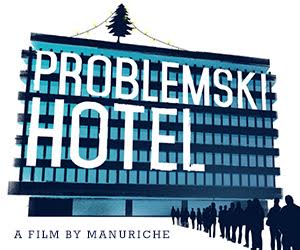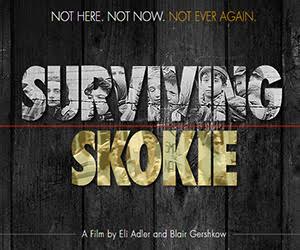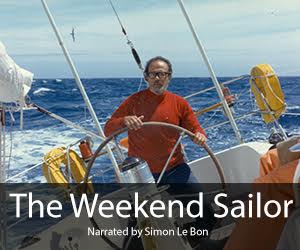
Watch the video on Youtube here
Film Courage: Forgive me, Michael. Can you explain please quickly what a structural device is? It’s a little unclear to me.
Michael Hauge: Sure. Well, first of all let’s talk about what structure means. Structure or plot structure simply means the sequence of events. What’s the sequence? What happens and when does it happen? Let’s say you’re writing a script and you want a car chase in it. Is it going to open the movie? Is it going to be right at the midpoint? Is it going to be the climax? Where does it occur? That’s a structural question. So what we’ve been talking about extensively is my approach to the overall approach to the story which are the six stages which are created by those five key turning points. But within each stage, you still have to be smart about what the sequence of events would be. There are some other structural tools you can use to help you maximize the emotional experience for the audience.
Let me give a couple of examples. One of those would be anticipation. Keep in mind that when we go to the movies what we like to do is try and guess what is going to happen next. We’re always thinking about “Oh, what is going to happen?”
And in the movie, you want to create anticipation in the movie.
And if you go to see JAWS….[laughs]
“To create that anticipation, there is another device that is really effective to use and that is what is known as superior position. Superior position means telling your reader or your audience something that some of the characters in the movie don’t know. Because that lets your audience or your reader anticipate what is going to happen when the people who don’t know that this is happening or this exists, don’t know what I know, find out what happened, what I know.”

Watch the video series on Youtube here
Film Courage: [Laughs] This is now the third time during our interview where I think of a movie [quietly to myself] and you say it!
Michael Hauge: Well, JAWS is such a classic example of anticipation but it was sort of, because of the necessity of having a broken shark, all they really had was a dorsal fin. But every time we see the dorsal fin, we’re anticipating “Oh, my God! Here comes the shark.” In fact, this has nothing to do with the screenplay but [composer] John Williams added a lot of anticipation by creating a theme just for the shark and now all you have to do is hear Da…Da…[mimics the shark theme from JAWS]. Everybody in the world knows what those two notes mean and so that is anticipation. So we love that because we don’t just want to sit there bored and only enjoy emotion when it happens. We want to think about the conflict to come because emotion grows out of conflict. So that is anticipation.

Check out Michael’s book Writing Screenplays that Sell
To create that anticipation, there is another device that is really effective to use and that is what is known as superior position. Superior position means telling your reader or your audience something that some of the characters in the movie don’t know. Because that lets your audience or your reader anticipate what is going to happen when the people who don’t know that this is happening or this exists, don’t know what I know find out what happened, what I know. So the classic example of that would be in a suspense thriller and then that means you go to Alfred Hitchcock. He talked about this all the time. He had an anecdote he use to say and that is if you’re shooting a film and two people are talking sitting across from a desk. And all at once a bomb that was hidden in the desk goes off and they’re blown to bits, you would say (and I’m paraphrasing. He said it much more elegantly) you’d would probably squeeze about 60 seconds of emotion out of that because you’d be shocked and surprised. It would be awful and then the audience is saying “Okay, now what?” But he says “Supposed the camera cut to the bomb inside the desk and we know it’s there. But the two people at the desk don’t know. Then you could milk that for 10 minutes because then you’re thinking “Where is the bomb squad? Get out of the room? Get out of the room?” And because we know that the bomb is there but the two people at the desk don’t know. We have superior position and with that superior position we can anticipate what’s going to happen and anticipating the horrible violence and we don’t want it to happen and now we are deeply emotionally involved for that conflict for a for a much longer period of time. And if you want a more recent example of that (I’m not going to say too much for the sake of those who haven’t seen it) but I strongly recommend everyone see EYE IN THE SKY. And all I will say about that is for a great example of superior position, we know what is going to happen but the girl selling bread doesn’t know. And that creates tension that lasts in the movie for at least (I would guess) 30 to 45 minutes. Because that whole movie in a way is built on that superior position and anticipation of conflict.

Watch the first half of Michael Hauge and Mark W. Travis Film Courage series here on Youtube
A third example of a structural device that I recommend highly is a ticking clock. That means you always want to built conflict in your story. You can exponentially increase the level of conflict by having whatever you’re trying to have the hero do, be a race against time. So again if you have a thriller, it’s like they’re rushing to stop the killer before the killer blows up the bomb in the cathedral. Or there is rushing to stop the bad guy before the bad guy kills the kidnap victim that they’re holding hostage.

Watch the second half of Michael Hauge and Mark W. Travis Film Courage series here on Youtube
Okay, so there is a lot of examples of it in action movies and thrillers and also there are a lot of examples of it in romantic comedies. If you look closely at romantic comedies you’ll see often in the last act of the movie right before the climax, there will be a scene which is what I call the race to the wedding. And you’ll see actually the pace speeds up. The hero is rushing to get to the love interest. So in the movie KNOTTING HILL, she comes to him and says that famous line “I’m just a girl standing in front of a boy asking him to love her and wants to be with him (the Julia Roberts character) and Will (the Hugh Grant character) says “I have to refuse because I can’t have my heart broken again.” He’s retreating in his identity. So then he goes to his friends and says “Did I do the right thing?” And all his friends say “Yeah, yeah, that’s right. It would be a bad idea” and so on. Until his reflection character Spike comes into the room and they all tell him he just broke up with Anna Scott and he looks at Hugh Grant and says “You daft prick!” because that’s him holding the hero’s feet to the fire saying you’re not going with your truth. What then happens? We know and Hugh Grant knows, she’s about to leave town and he has no idea how to reach her except she is giving a press conference. So they all jump in this little car and go screaming through the streets of London to get to the hotel where the press conference is so he can get there and declare his love for her before she leaves town. That ticking clock speeds up the momentum, accelerates the pace, raises the level of conflict and puts a greater obstacle for the hero to overcome and that makes the structure more effective.
Question: What are some great examples of “Superior Position” and “Ticking Clocks” in a TV show or Movie?
To immediately get your free copy of Michael Hauge’s 6-Stage Structure Chart, just go to Storymastery.com/fcchart
BUY MICHAEL HAUGE’S BOOK – WRITING SCREENPLAYS THAT SELL, NEW TWENTIETH ANNIVERSARY EDITION:
The Complete Guide To Turning Story Concepts Into Movie and Television Deals
https://amzn.to/1zV8ifp
CONNECT WITH MICHAEL HAUGE
Storymastery.com
Twitter.com/michael_hauge
Advertisement

Watch Problemski Hotel on Vimeo here
PROBLEMSKI HOTEL: For the inmates of the multinational residential center somewhere in Europe, the circular, black comedy that is the cross-frontier migrant’s life ‘within the system’ becomes even blacker in December. For we are in the European ‘season of gladness and joy.’ Bipul doesn’t want to admit it to himself, but the Russian girl’s arrival makes a difference: Lidia. Hope? Surely not! A future? Get real! December is also the ninth month of Martina’s pregnancy. Pregnancies don’t go round in circles; they end in eruptions. Because when the situation is hopeless, rescue is near.

Watch Surviving Skokie on Vimeo here
SURVIVING SKOKIE: They survived the horrors of the Holocaust and came to America to put the past behind. For decades they kept their awful memories secret, even from their children. But their silence ended when a band of neo-Nazi thugs threatened to march in their quiet village of Skokie, Illinois “because that is where the Jews are.”
Surviving Skokie is an intensely personal documentary by former Skokie resident Eli Adler about the provocative events of the 1970s, their aftermath, his family’s horrific experience of the Shoah, and a journey with his father to confront long-suppressed memories.
 “Hi, Mom!” Zooppa has partnered up with T-Mobile on a brand new project! T-Mobile gives its customers unlimited data and texting in over 140 countries and destinations—at no extra cost. T-Mobile wants to inspire those customers to travel and get off-the-beaten path—to be explorers, not tourists—and unlock adventures they can share when they take their phones. The ‘Hi, Mom’ project focuses on sharing the most extreme moments of adventure outside of the United States with family and friends back at home.
“Hi, Mom!” Zooppa has partnered up with T-Mobile on a brand new project! T-Mobile gives its customers unlimited data and texting in over 140 countries and destinations—at no extra cost. T-Mobile wants to inspire those customers to travel and get off-the-beaten path—to be explorers, not tourists—and unlock adventures they can share when they take their phones. The ‘Hi, Mom’ project focuses on sharing the most extreme moments of adventure outside of the United States with family and friends back at home.
The project is open for submissions until February 21st, 2017 at 4:00 PM PST. There are $40,000 in total cash awards available that will be assigned to the top eight videos chosen by T-Mobile. In addition to the cash awards, all winning videos will also be featured on T-Mobile’s social and web platforms or as a part of a compilation celebrating adventurous moments from around the world.

Watch THE WEEKEND SAILOR on VOD January 10, 2017
THE WEEKEND SAILOR is a new feature documentary about the unexpected victory of the Mexican yacht Sayula II in the first crewed sailing race around the world in 1974. The most demanding sailing quest in history.
Sailor, Ramon Carlín visits his rebellious son, Enrique in the United Kingdom and comes across a magazine advertising a sailing race around the world. Although he had been sailing casually for two years, Ramon embarks on this race and brings his son along as an opportunity to not only teach him discipline but real life experiences as well.

Watch CATCH 22: based on the unwritten story by seanie sugrue – coming soon on January 17, 2017
Catch 22: based on the unwritten story by seanie sugrue: With Hurricane Sandy looming on the horizon, five hard-lived friends come to from a send-off celebration alongside an unexplained dead girl. What are friends for?

Find out more here!
Teenage Mutant Ninja Turtles (TMNT): Zooppa and Nickelodeon are inviting filmmakers and motion graphic artists from around the world to reimagine TMNT on a global scale through depicting what they are up to in various home towns or cities. The goal is to show how the Turtles would come to life in any given location, using local city or pop culture influences to help tell the story. Zooppa and Nickelodeon are looking for imagination and creativity, the videos made should be a fun way to share Turtle stories from across the globe––authenticity is key!
The project is open for submissions until February 23rd, 2017 at 4:00PM PST. There are $25,000 in cash awards available to the top 10 videos that will be chosen by Nickelodeon.
























